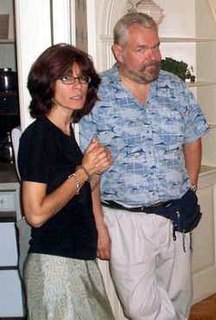A Quote by Northrop Frye
The kind of problem that literature raises is not the kind that you ever 'solve'. Whether my answers are any good or not, they represent a fair amount of thinking about the questions.
Related Quotes
What we're thinking about is a peaceful planet. We're not thinking about anything else. We're not thinking about any kind of power. We're not thinking about any kind of struggles. We're not thinking about revolution or war or any of that. That's not what we want. Nobody wants to get hurt. Nobody wants to hurt anybody. We would all like to be able to live an uncluttered life. A simple life, a good life. And think about moving the whole human race ahead a step, or a few steps.
I don't think kids have a problem reading books meant for adults; the problem is on the other side of the fence, a misconception of what one kind of literature is 'supposed' to be, perceived to be, as opposed to another: if it's for kids, it can't be any good; it's got to have been dumbed down and/or sweetened up.
People have been trying to do kind of natural language processing with computers for decades and there has only been sort of slow progress in that in general. It turned out the problem we had to solve is sort of the reverse of the problem people usually have to solve. People usually have to solve the problem of you're given you know thousands, millions of pages of text, go have the computer understand this.
It's not really about asking for the raise but knowing and having faith that the system will actually give you the right raises as you go along. And that, I think, might be one of the additional superpowers that, quite frankly, women who don't ask for raises have. Because that's good karma. It'll come back. Because somebody's going to know: 'That's the kind of person that I want to trust. That's the kind of person that I want to really give more responsibility to.'



































